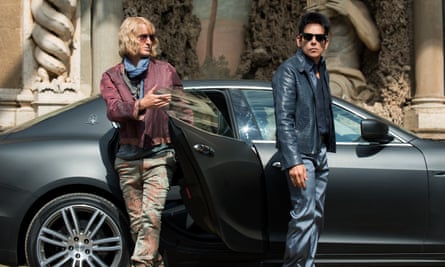By most measures, the all-female reboot of Ghostbusters was a box-office flop, losing upwards of $70m for Sony after tepid domestic and international returns failed to match the robust production and marketing budget. It also happens to be, at the time of writing, the highest grossing non-animated comedy of 2016 – not the most profitable, but it was the film the most American viewers paid to see. To state the obvious, when one of the year’s biggest studio comedy is also one of its most notable bombs, it hasn’t been a banner year for comedy.
There are specific reasons why Ghostbusters failed, from the army of troglodytes who condemned the movie before its release and attack Leslie Jones on Twitter, to the denial of its release in China, to the anodyne notion that, well, maybe it wasn’t all that funny. Sometimes comedies aren’t successful because they aren’t successful comedies, and Ghostbusters was a raggedy proposition, wounded by an awkward mingling of improvised banter and computer effects, an arbitrary plot, and a half-in/half-out fidelity to the original that kept it from establishing its own identity. There were many forces tugging every which way on Ghostbusters – the massive budget, the sacrosanct legacy of the original, the table-setting for a franchise – and none of them helped make it a better movie.
Despite the elevated stakes of The Great Ghostbusters War of 2016, the takeaway isn’t that women should never be allowed to carry a blockbuster again. It’s that the blockbuster mentality is often at cross-purposes with making a good comedy. Ivan Reitman’s 1984 version was both a breakthrough and anomaly, in that it proved it was possible to reconcile the effects-driven bigness of a modern studio tentpole with free-ranging tomfoolery. (Just ask 1941 how that experiment went.) But that will always be a difficult needle to thread, because the need to work on an elevated scale often destroys the quirkiness and character-driven specificity of a good comedy. Throwing money at comedies doesn’t make them funnier; if anything, it amplifies the pressure so much that even throwaway gags are high-stakes, market-tested affairs.
The pattern of failure in 2016 is clear. See if you can spot it: Zoolander 2, Neighbors 2, Bad Santa 2, My Big Fat Greek Wedding 2. For three of the four – Zoolander, Bad Santa and My Big Fat Greek Wedding – the process of making a sequel to a standalone hit was so tortured it took 15, 13 and 14 years, respectively, to finally get the job done. Beyond the demographic problems of appealing to a core audience that has largely aged out of going to the movies, the retrofitting necessary to turn a one-off comedy hit into a franchise is either lazy or tortured.

Ben Stiller and Owen Wilson were nearly too old to pass as male models in 2001’s Zoolander, so in 2016, they’re brought together as dim-witted superspies to fight more tyranny in the fashion world. Bad Santa ended with Billy Bob Thornton’s mall Santa getting betrayed by his partner (Tony Cox) and shot and arrested by the police, but all is forgiven in a sequel that reunites for a similar job. My Big Fat Greek Wedding 2 needs a couple to divorce in order for a second big fat Greek wedding to happen. And Neighbors 2 seems like the result of the most half-hearted pitch session in history: “So what if, like, a sorority moved in next door?” And then it ties itself into knots trying to justify why Zac Efron is still in the picture.
The studios’ instinct to turn hits into franchises may pay off when a sequel continues an adventure rather than repeats it, which may explain why Ride Along 2 succeeded modestly where others failed, but 2016 suggested that audiences were not eager to laugh at the same jokes twice. Studios were punished for going the conservative route for comedies, at least in assuming their blockbuster gigantism could be a one-size-fits-all model for success in every genre. Granted, the year’s biggest comedy hits – Central Intelligence, Bad Moms and Sausage Party – didn’t exactly play things small in trying to compete in a outsized marketplace. The loudest voice still commands the room, just so long as it’s not repeating itself.
The three best studio comedies of 2016 seemed almost designed to fail theatrically and find their audience later, when their peculiarities can finally take root in cult circles. The Nice Guys, Keanu and the Lonely Island spoof Popstar: Never Stop Never Stopping all turn a fetish for 80s cinema into a thrillingly offbeat revitalization, making the old seem new again. And their box-office struggles were almost predestined. Writer-director Shane Black monetized the wiseass buddy-comedy in the 80s with his script for Lethal Weapon, but The Nice Guys has more in common with his noir-inflected Kiss Kiss Bang Bang, and Warner Brothers didn’t know what to do with either of them. Universal spent little money promoting Popstar: Never Stop Never Stopping, anticipating that the same Lonely Island fans that turned Hot Rod into a home video hit would resurface for their boy-band This Is Spinal Tap.
All of which leaves studio comedies in perilous spot, creatively and financially, for 2017 and beyond. If the franchise bets don’t pay off on one end and the eccentric gambles don’t pay off on the other, the margin for success is as thin as John Waters’ mustache.

Comments (…)
Sign in or create your Guardian account to join the discussion